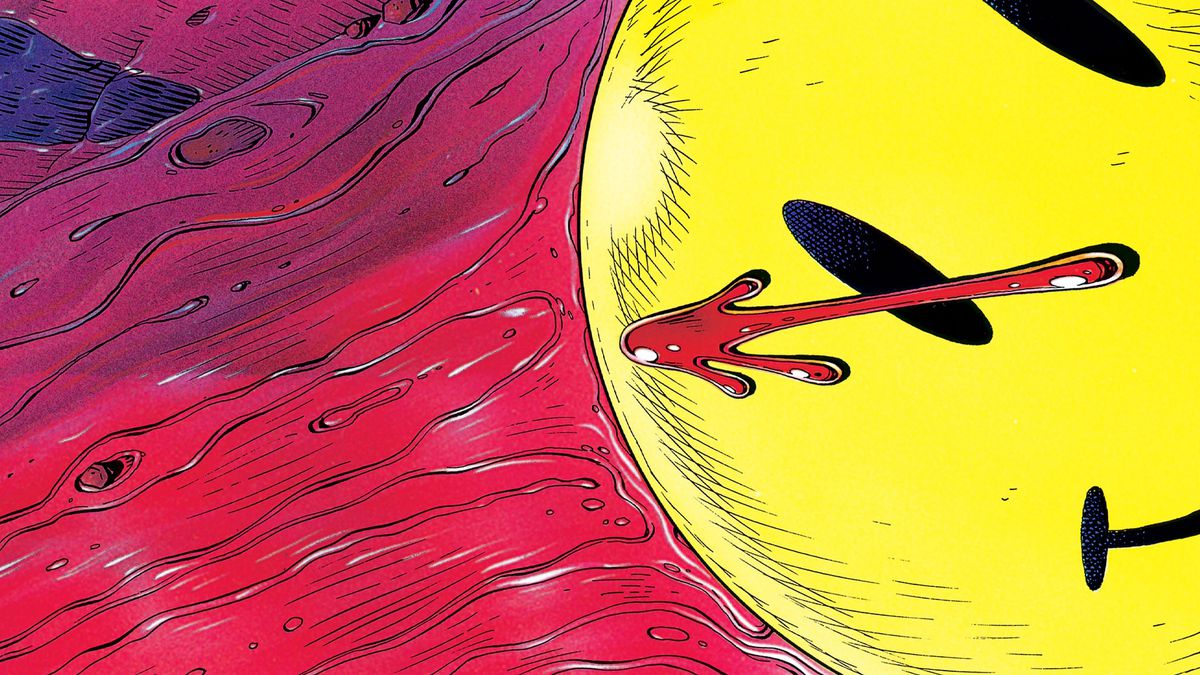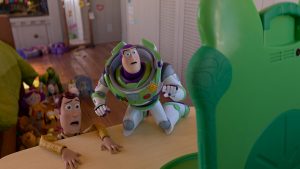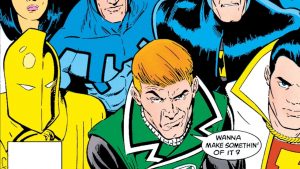
The movie adaption of Watchmen could, arguably, be the moment that everyone realized that geek culture alone couldn’t carry normie culture. Geek culture was riding high. It was the dominant form of pop culture. Batman Begins had stamped its mark on cinema, and The Dark Knight had sent the profile of comic book characters back into the stratosphere.
The double whammy of Iron Man and The Incredible Hulk landed the summer before, firing the starting gun on the MCU. The much-lauded (at the time) “New Spielberg” that was JJ Abrams even had a big-budget, glossy version of the ultimate nerd fodder heading to cinemas in the form of Star Trek. It was good to be a geek. We were going mainstream.
It seemed everything Geek was hot, and it couldn’t fail. So Warner Bros. still counting all that Batman cash, reached deep into their rights locker and pulled out the long-gestating Watchmen. Some held this to be the ultimate graphic novel.
They tapped up Zack Snyder, riding high from defying expectations with a Dawn Of The Dead remake, and then smashing another graphic novel adaption out of the park with 300. The stage was set for triumph. Only it wasn’t. It instead provided the answer to the question “How geek is too geek?” and everyone normie stayed at home, nobody came. It was like Blade Runner 2049 a decade early. It proved normies weren’t buying everything the geek was selling.
Even some of the target audience turned against the movie, decrying the lack of Tales Of The Black Freighter comic within the comic, and man-made psychic space squid, while making Dr. Manhattan the center of everything. Counter-intuitively, others said the shot-by-shot recreation of the comic was too slavish.
Recently the movie has undergone something of a re-evaluation. People revisiting it for the first time in a long time are finding much to appreciate. They are not alone.
There is a reason Christopher Nolan hand-picked Zack Snyder to build out the version of Superman he had helped sketch out for Man Of Steel. Speaking recently to The Hollywood Reporter he was full of praise for Watchmen even after all this time:
“I’ve always believed ‘Watchmen’ was ahead of its time. The idea of a superhero team, which it so brilliantly subverts, wasn’t yet a thing in movies.
It would have been fascinating to see it released post-Avengers.”
He’s not the only one. Lead actor Patrick Wilson says it is the only movie that he’s in that he has watched again since the premiere:
“I knew Zack was ahead of the curve. It’s weird to say that audiences weren’t ready for it. But you need a movie like that. You need movies to go so dark that then Avengers can go so light. I do believe in that.”
Snyder himself has said he would return to the world of Watchmen if called. One person who is customarily grumpy about the whole thing is legendary curmudgeon Alan Moore, creator of the original graphic novel. To be fair, he is echoing anyone sane when he slams the HBO-Damon Lindelof reimagining of Watchmen. In an interview with The Guardian (of course!) a year ago, he also said that Nolan’s Batman films legitimizing the genre was terrible for all involved:
“I didn’t really think that superheroes were adult fare. I said round about 2011 that I thought that it had serious and worrying implications for the future if millions of adults were queueing up to see Batman movies. Because that kind of infantilization – that urge towards simpler times, simpler realities – that can very often be a precursor to fascism.”
Don’t go changing, Alan. As for the rest of us, is it time to start giving Zack Snyder’s adaption of Watchmen the respect it deserves?
Check back every day for movie news and reviews at the Last Movie Outpost
The post Re-evaluating WATCHMEN appeared first on Last Movie Outpost.


